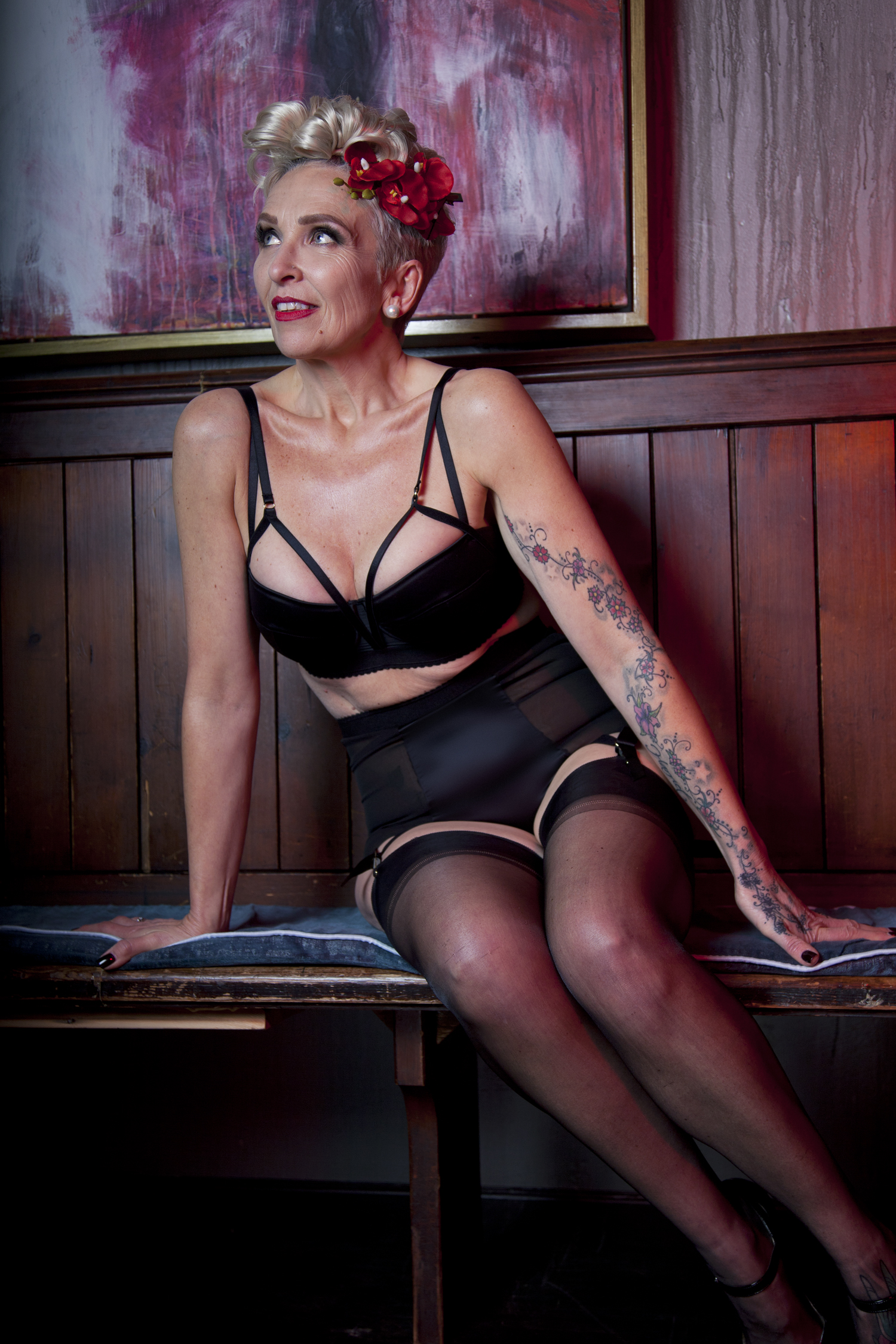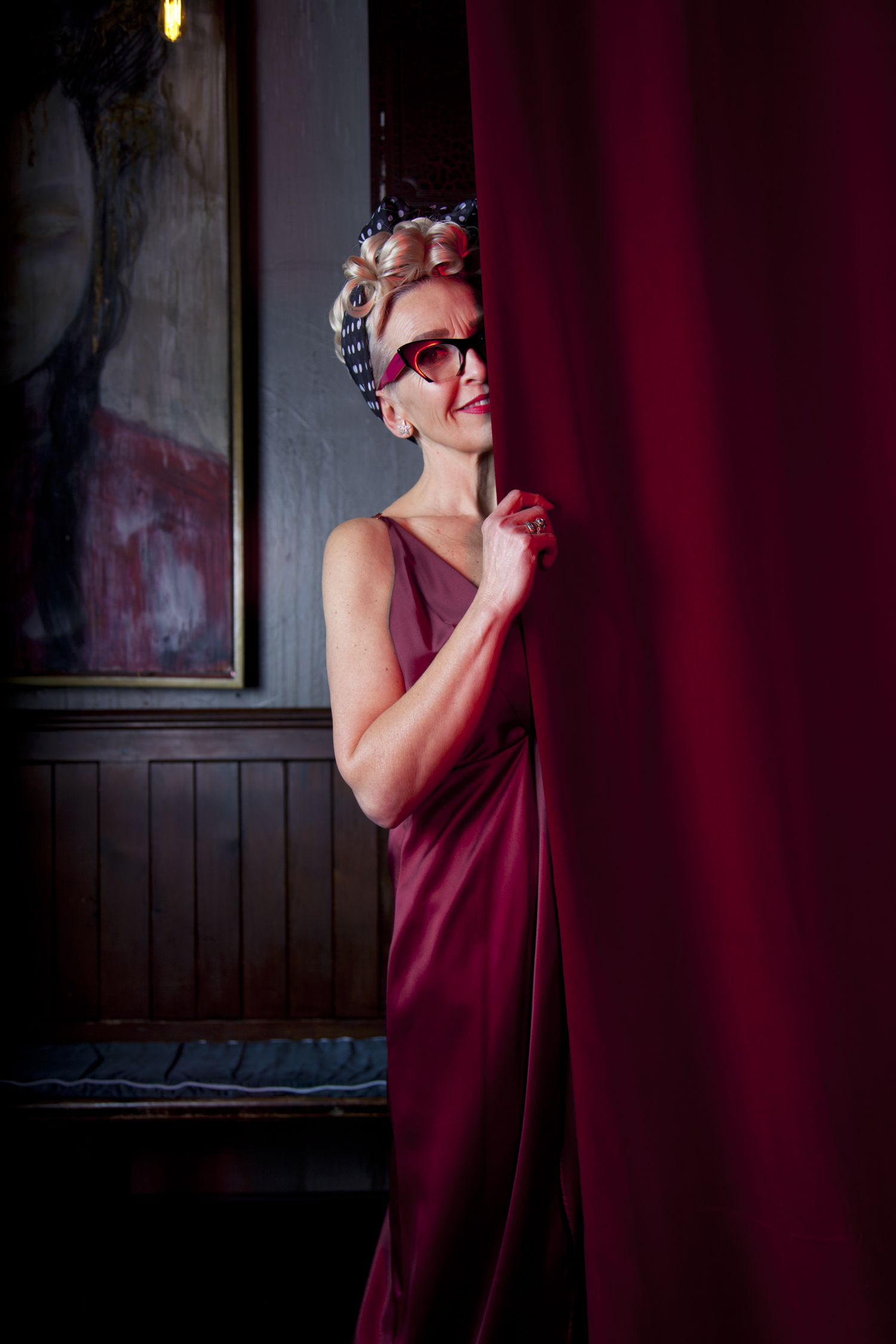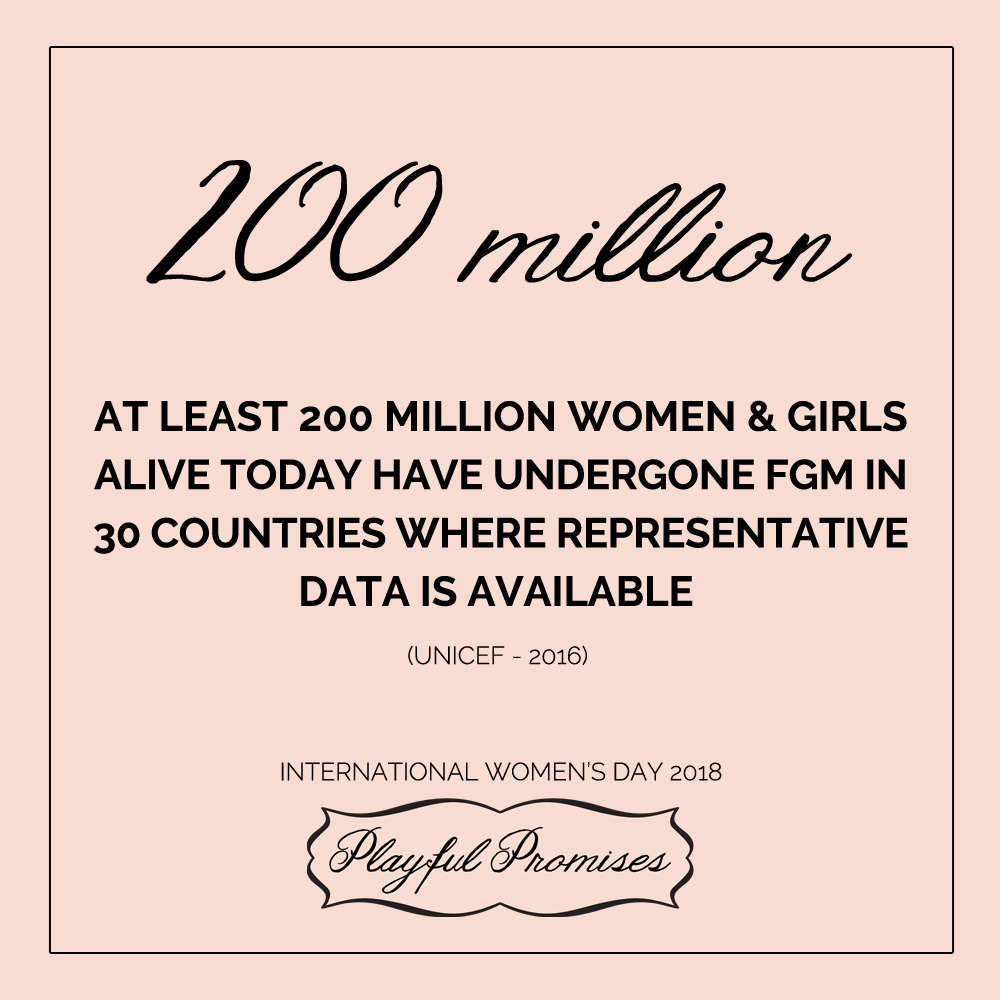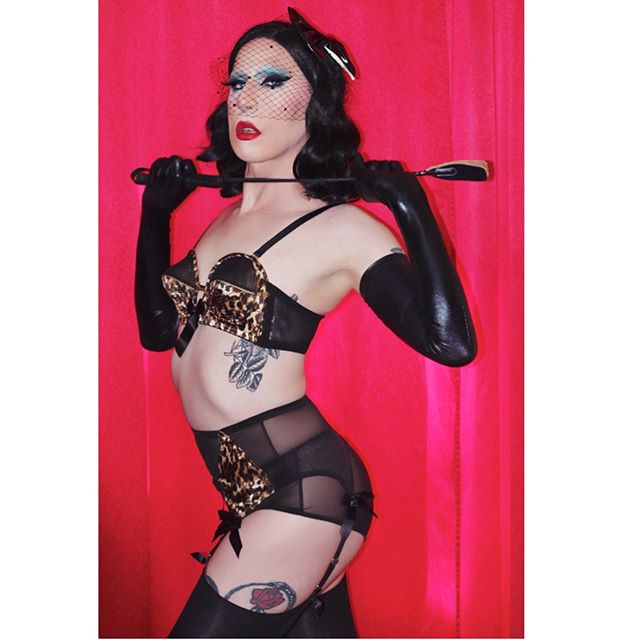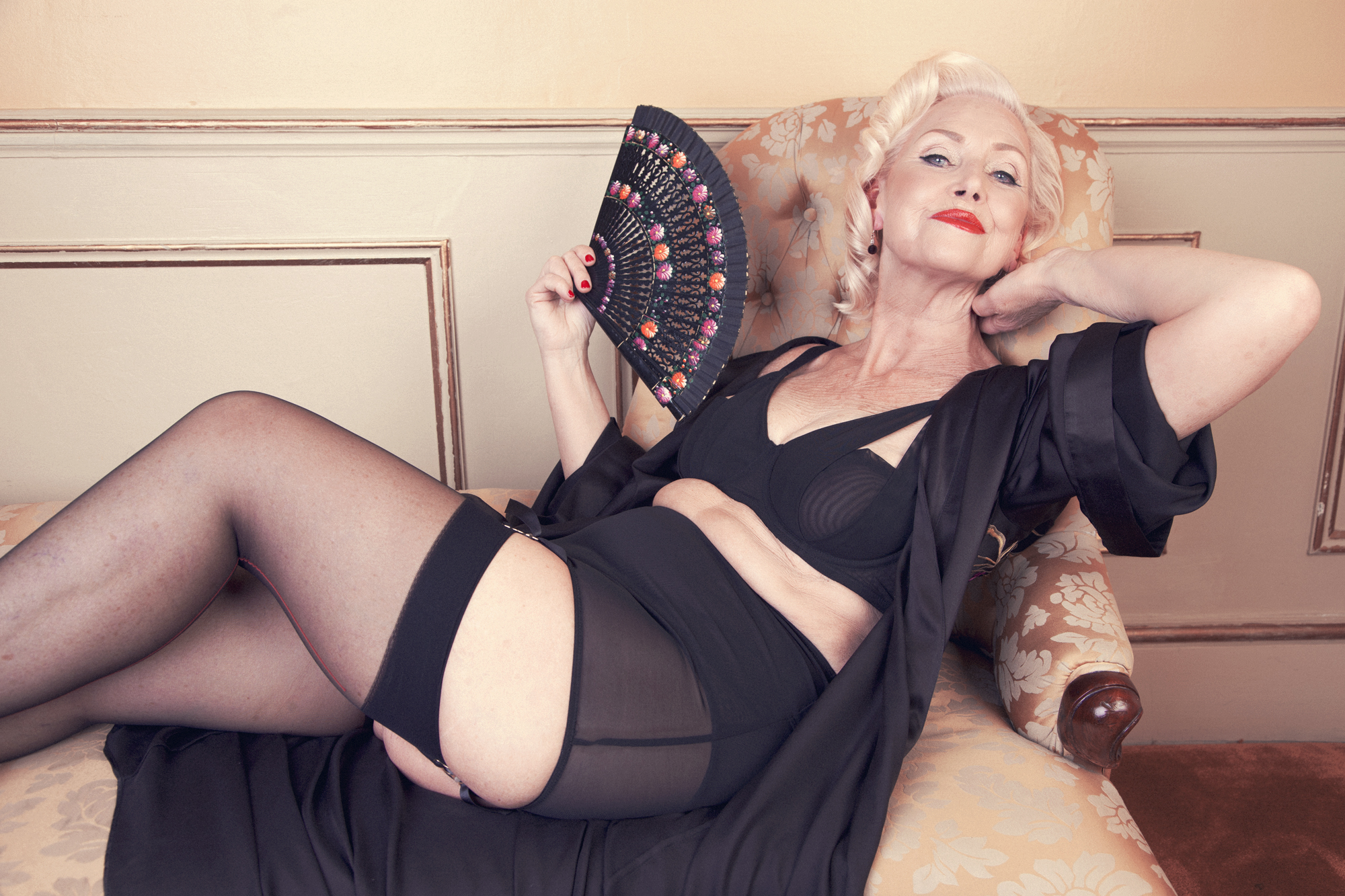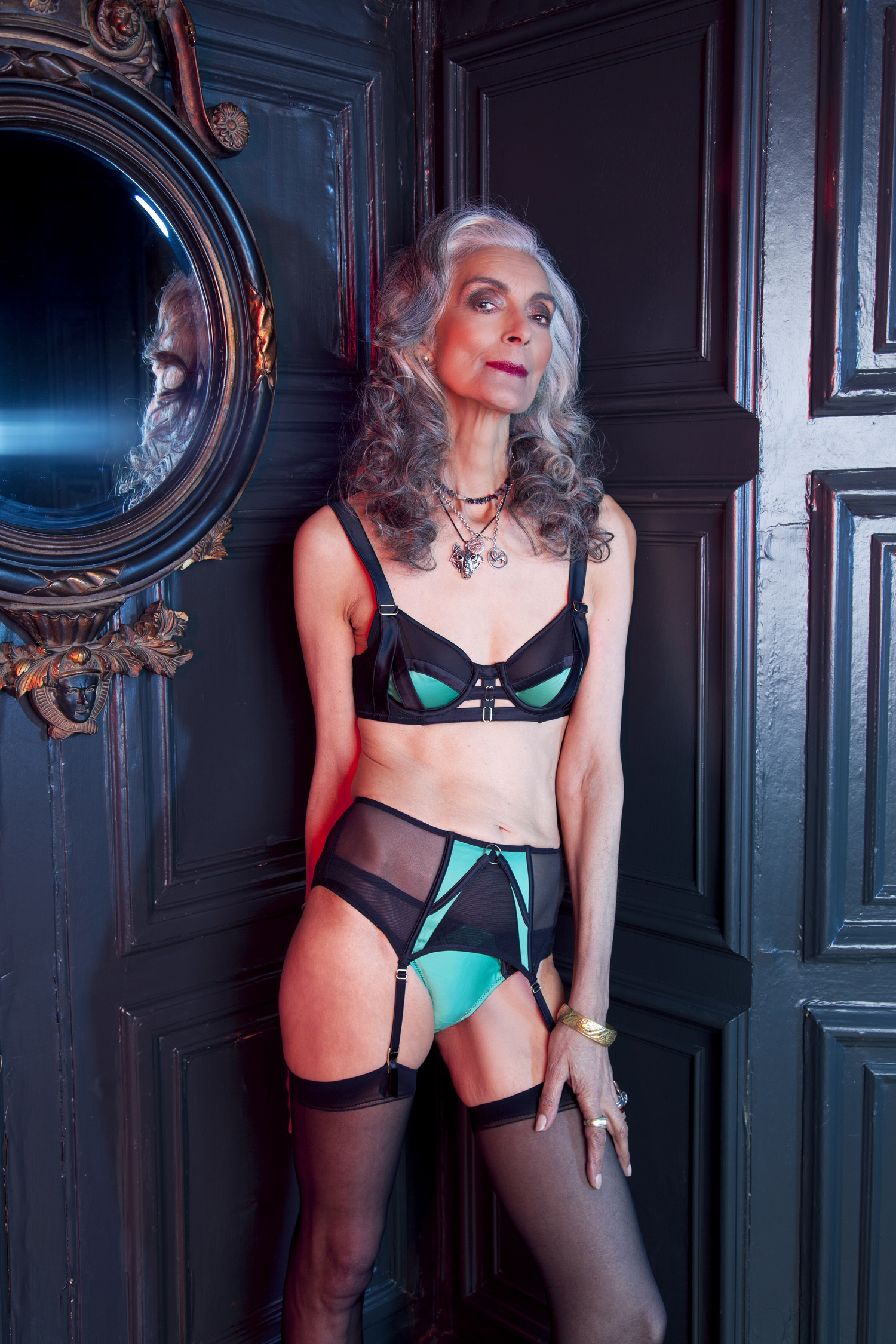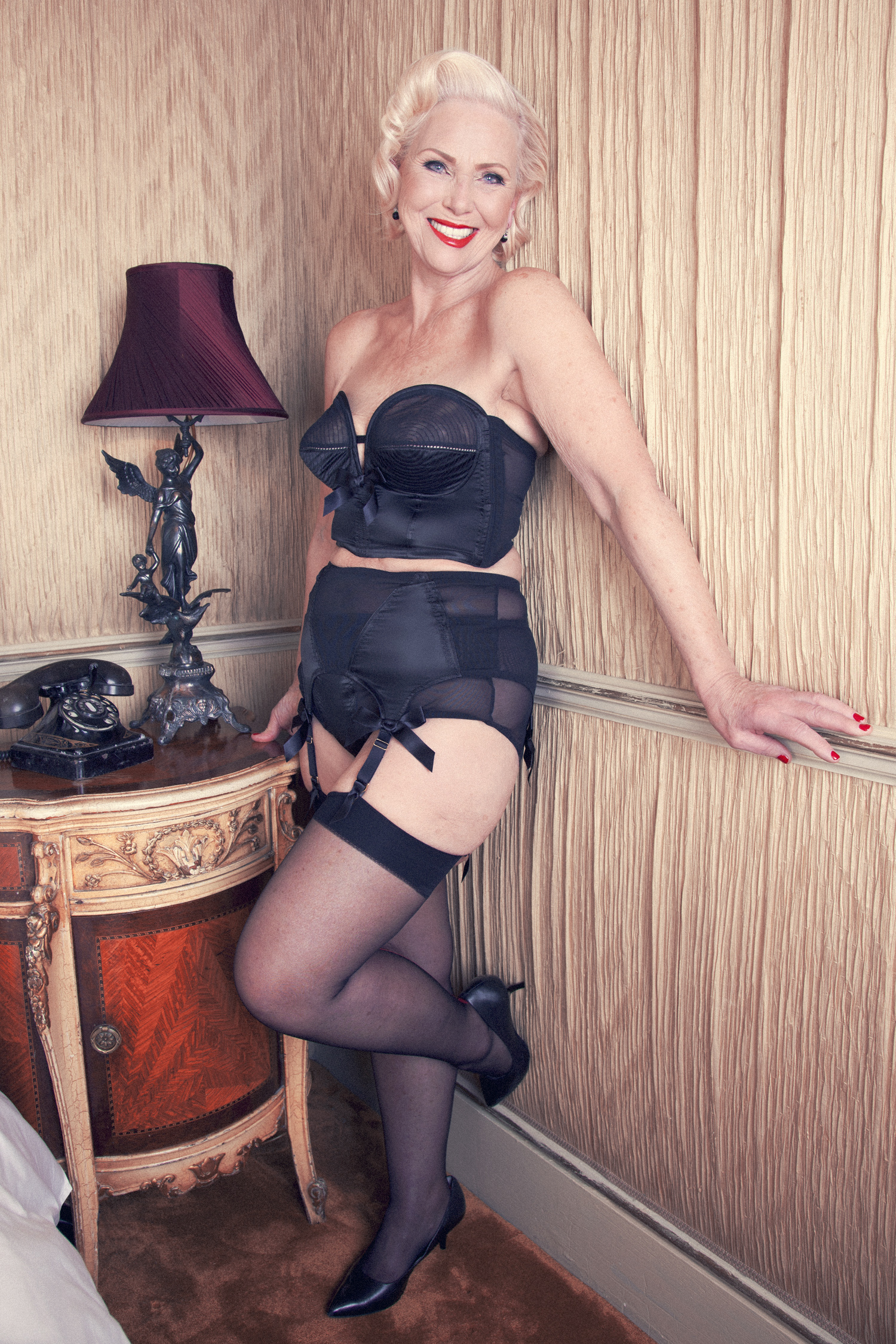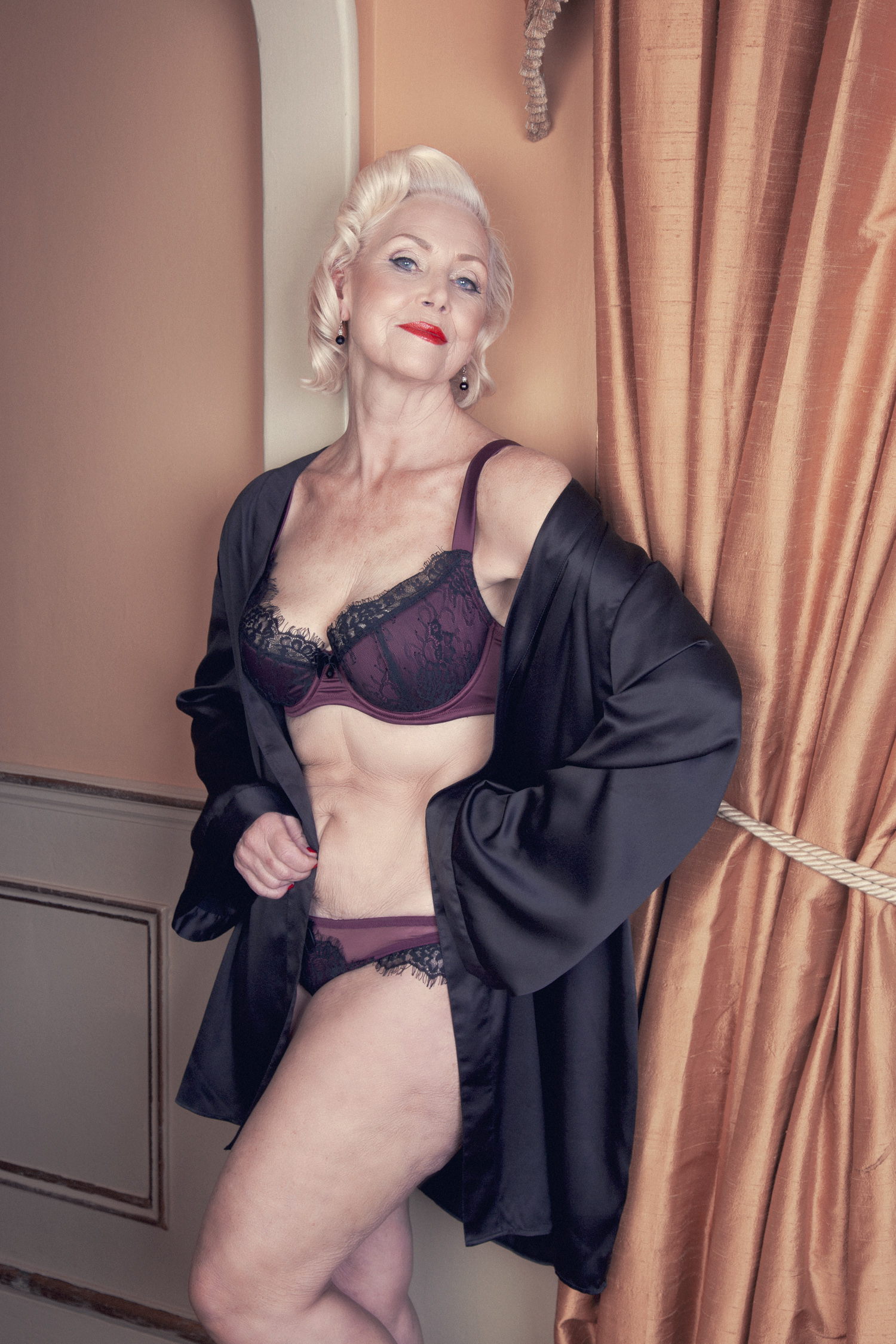With that iconic black fringe and cheeky demeanour, Bettie Page is well-known for her provocative imagery. Tongue firmly in cheek and appearing in control of her sexuality, she’s been adored around the world for decades. She ranks within the 10 top earning dead celebrities, the only woman in that list. Fans find Bettie influential in various ways, from feminist statements to vintage enthusiasm; her images and homemade lingerie has often inspired our own work. And so, last year, we jumped at the chance to launch a collaboration with the Bettie Page brand – a collection of lingerie inspired by the iconic woman herself.
Naturally, we looked to classic images of Bettie Page at her most sexy and cheeky; researching all we could about what gives her that multigenerational appeal. We scoured social media for images and read reactions for an insight into just why she’s remained so popular. Working in the lingerie industry, we’re rather used to a certain level of overtly sexual comments, however, Bettie Page images seemed to illicit an even more graphic response.
This had us asking questions about why exactly images of Bettie Page – not dissimilar from our own imagery – were more susceptible to derogatory comments. What does this say about consent when these statements are projected on an image of a now-deceased woman?
Bettie Page is of course an icon in the world of fetishism and cheesecake pin-ups, so it’s natural for her to still be considered a sex icon all these years after her death. Similarly, Marilyn Monroe is often the cover-girl for thinly-veiled misogyny disguised as body-positivity in memes praising “curvy” body types over the bodies of thinner women. Something I very much doubt she’d be in agreeance with!
My initial thoughts on the objectification of these women, and why they are often sexualised even more than their modern counterparts, were that they are no longer around to exercise the right to say no. Often, when we receive comments on our images, the wording implies dissociation with the fact that there’s really a person in that image – something that subconsciously becomes even easier with the knowledge that that person is no longer living. This leads to a very troubling idea of what consent means to some – they can’t say no, therefore it’s okay to do what you like with them. Instead of being seen as real women, they’re commodities for gazing at.
There are other reasons why women of the past may be more commodified than modern women. In the fifties, the idea that women should be subservient was prevalent – the 50’s housewife isn’t just a trope but a reality for many women who had no other options. Men sometimes fetishize this type of woman; someone who will cook, clean, look after the children, whilst maintaining an unrealistic beauty standard and giving in to their partner’s every whim. This submissive woman is seen as “classier” (a frustrating word we encountered often in the comments) than modern females who are much more outspoken, career-driven and educated on their rights as a human being than ever before. What this implies is that the old-fashioned ideal of how a woman should act is more desirable than what the reality is today. The idea that obedience = “classy” is a troubling one. To many, a yes-woman is better than a woman who exercises her right to say no when she feels uncomfortable.
Modern women are compared with women of the past aesthetically as well. We’ve all seen the pictures of Marilyn and other “curvy” 50’s starlets placed next to skinny modern-day models (“only dogs want bones” is the dire phrase that’s trotted out most often – offensive to both women AND men). Men idolize the women of the past for supposedly having put more effort into their appearance, yet belittle modern women for spending time and money on make-up and hair; often seen as vapid and accused of “tricking” men. The pencil skirts, wiggle dresses and tightly-fitted blouses of the 50s are supposedly demure, despite being figure-hugging and often-restricting, and therefore more desirable than the way women dress today. This manages to be yet another way to pit women against each other and hold them up to an unrealistic standard of how they should behave and look.
Stripping agency of these women by hypersexualising and objectifying them promotes a negative idea about consent. Conversations about consent needs to be opened up in order to create a safer environment for women, both online and in real life. Just because a woman doesn’t say no, doesn’t give anybody the right to sexualise or degrade them.
Similarly, just because a photo of a woman is readily available on the internet doesn’t give anyone the right to reduce them to a sexual object. Also, applying negative thoughts to the women that don’t cater to a particular taste is another way to make women feel inferior. We believe in appreciation and encouragement of women no matter their size, shape, or race, and consider them to be individuals rather than objects to be compared and rated on their appearance.






